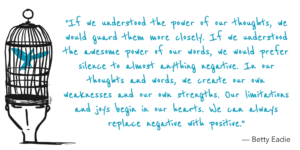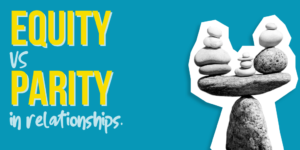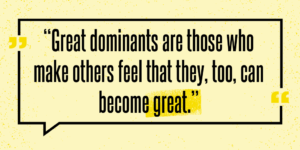Over this past weekend, as I was in Jacksonville to teach, a writing of mine popped back up for a spate of attention.
Which, interestingly, I was going to talk about in my class that afternoon, and bring up in many classes I teach as an illustrative example.
@James-P commented on the post, about validation, and offered that validation is a basic human need. I asked questions, and the conversation went less than spectacularly, however…
He has a point.
And a good one.
In the original article I did not presume to map out any human needs or wants, as I feel that tends to be innately personal.
However, the idea of validation as a human need is worth writing about, so here I am.
He presented the following:
- Sexuality (in a positive way)
- Sensuality
- Desirability
- Vulnerability
- Innocence
And his perspectives on them, including his lived experiences (which is another writing altogether).
All of these are feelings this person wants to both experience themselves AND feel validated in.
Other feelings might include:
- hurt
- anger
- injustice
- joy
- love
- intelligence (as a feeling of, not necessarily an IQ score)
And so on.
So, what is validation, and why is it a human need?
Validation is the recognition and acceptance of another person’s internal experience as being valid.
And that word, ‘valid’ is problematic, because people most often use this definition as a sticking point:
(of an argument or point) having a sound basis in logic or fact; reasonable or cogent.
Which, of course, can be debated, because, well, whatever I am feeling may not be reasonable or cogent, or have a sound basis in logic TO THEM.
A better option might be:
legally or officially acceptable.
Where “officially” means between the two of you, right here, right now, in this place. It’s acceptable. It’s allowed.
According to [A Theory of Human Motivation][http://psychclassics.yorku.ca/Maslow/motivation.htm] by A. H. Maslow ([image here][https://www.simplypsychology.org/maslow-5.jpg]), esteem is a critical need and motivation in behavior.
Esteem being both internal and external.
We feel esteem when someone validates us. We feel self-esteem when we validate ourselves (which is often a result of both a strong inner self, a childhood of being taught our feelings are valid, and/or years of hard work to learn our validity).
Validating someone does not mean that you AGREE with their feelings.
It doesn’t even mean you support their feelings.
It simply means that you see that they feel them, and you believe they have good reason to feel them (based on THEIR lived life and viewpoint).
Validation doesn’t mean you like those feelings or the person, even. You can support and validate someone in their feelings even when you detest them.
And many people choose not to. Not even with people they love.
Often, because it feels like they are giving too much away, even before they get to start their counter argument.
They feel like invalidating another puts the person off-balance, and gives them an edge in pushing forward their own ideas and thoughts.
And sadly, they are usually right.
Being invalidated DOES put most people off-balance, and makes them vulnerable and open to (if not immediately) hurt.
While validating someone solidifies their sense of self, and shows you are actually present and open to them and what they are communicating.
PRESENT
AND
OPEN
Alan Alda says, “Real listening is a willingness to let the other person change you.”
Even if that change is as small as the thought:
“Well, I never thought that someone could feel that way about this thing, but this person does, and that is a thing, and I now know that someone’s lived life led them to this way of thinking.”
Again, that’s not agreeing. It’s not liking the person or their thought.
It’s simply validating that they have this thought, and they likely have very good reasons (based on their lived life) to do so.
Nothing more.
Still, too much of a step for many.
Even with people they love.
Validation: Is Your Need Met?
Is your need for validation met in your life? In all your life? Are there areas where your need for validation is lacking? Let’s look at a few areas, to prompt our thinking:
- Friendship
- Family
- Love/Relationships
- Work
- Achievements
On the other side, do you find validating others natural for you? Does it come easy, or do you have to work at it? Do you even bother, or do you feel validation is unnecessary?
Personally, validating others can often be a challenge for me. I’ve been working on it, and I still feel I’m often not as good as I’d like to be, but I have improved, and I will keep improving as I can.









